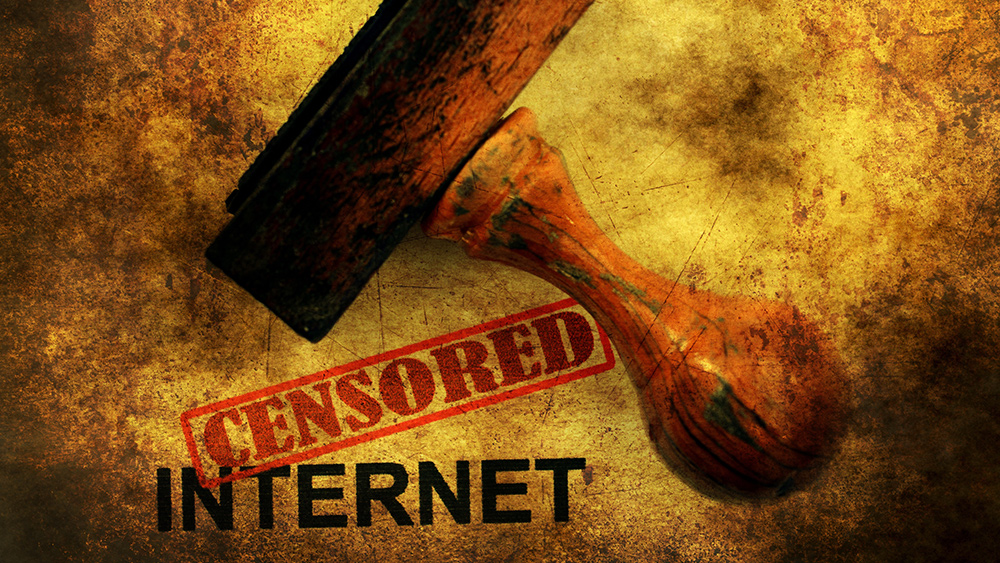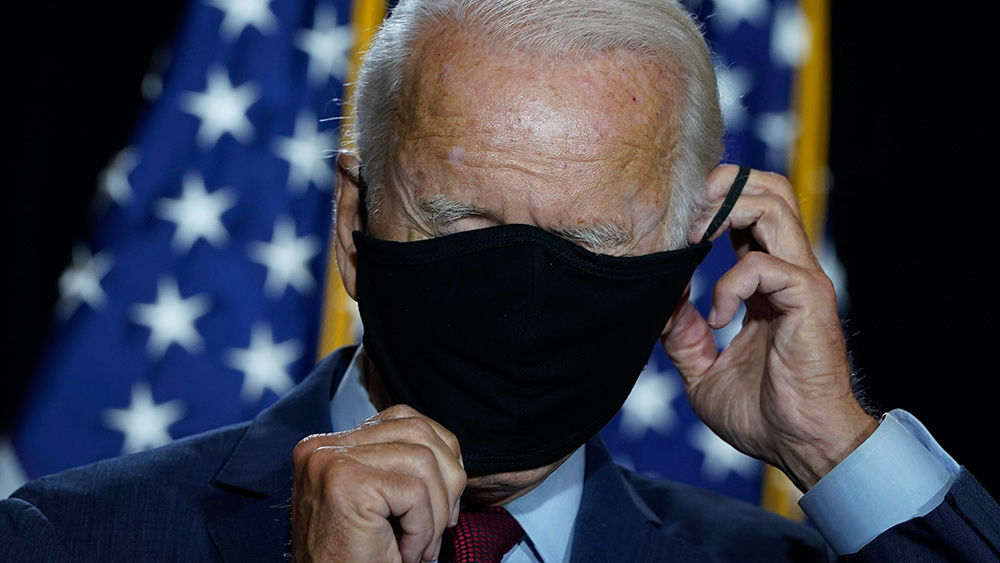Scotland passes “hate crime” law criminalizing “hate speech” inside people’s homes
10/30/2020 / By Ethan Huff

A Pakistani who currently works as the “Cabinet Secretary for Justice” in Scotland has announced plans to criminalize speech inside the home that he personally feels might lead to a “hate crime.”
Humza Yousaf, who is not even Scottish, is credited with creating and implementing the so-called “Hate Crime and Public Order (Scotland) Bill,” which aims to protect “minorities” from mean talk that might take place around people’s dinner tables.
While the Public Order Act of 1986 has long prohibited threatening, abusive or insulting words and behavior, that law contains a “swelling defence” provision that allows people to say what they wish inside their own homes – something that Yousaf’s new legislation abolishes.
Under Yousaf’s new restrictions, Scots, including those who work as journalists and even theater directors, could be forced to face the courts if they say something not nice about Muslims, for instance, which are flooding the United Kingdom at record pace and displacing the natives.
According to Yousaf, Scots have no right to engage in “hateful speech,” even on their own property. Yousaf’s proposal was given the nod by Lord Bracadale to proceed with it, despite opposition from the Scottish Catholic Church, police representatives, academics, artists and others.
“It will introduce an offence of stirring-up hatred against people with protected characteristics, including disability, sexual orientation and age,” writes Mark McLaughlin for The Times (U.K.).
In other words, if you are someone who does not have a “protected characteristic,” then you will not be protected from “hate speech” under Yousaf’s law.
Why are foreigners allowed to create “hate speech” laws in countries where they do not even belong?
While Lord Bracadale is responsible for having made the recommendations that led to the bill’s creation, he did reportedly advise the Scottish Cabinet to think long and hard about how the public order will impact what used to be people’s private lives.
The committee’s convenor asked Lord Bracadale if from his “experience of the operation of criminal law” that the Parliament should “be alert to some danger in that,” to which Lord Bracadale responded in the affirmative.
“I think that your concern is well-founded,” he stated.
In other words, Scotland will now have a snitch culture in which angry “minorities” and their allies can target those they do not like with this weaponized legislation, which again was crafted by someone who is not even Scottish, but who somehow attained a high-level seat in Scotland’s government.
The Scottish government did agree to change one key piece of wording that, if left as Yousaf wrote it, would have made this “hate crime” bill even more of a threat than it already is.
Instead of reading “likely to stir up hatred,” the new version of the bill specifies that only language “intended to stir up hatred” can be prosecuted, which is much harder to prove than the former.
The Christian Institute, reporting on the bill, expressed thankfulness to the Justice Secretary for his willingness to compromise on what it describes as “one of the most controversial parts of the [b]ill.” At the same time, the group says that “many more changes are still required.”
Here in the United States, we are not that far gone – at least not yet – when it comes to criminalizing free speech. But we very soon could get to where Scotland is if the thought and speech police are allowed to continue in their quest to abolish the First Amendment – and the rest of the Constitution, for that matter.
We are already seeing glimpses of what is soon to come if things continue on their current trajectory with the attempted criminalization of phrases like “it’s okay to be white,” which social justice warriors (SJW) claim is “racist” and “hateful.”
More related news can be found at FirstAmendment.news.
Sources for this article include:
Tagged Under: criminalize, Hate Crime and Public Order Bill, hate crime law, Hate speech, homes, Humza Yousaf, journalists, liberty watch, private lives, Scotland, Scottish Catholic Church, theater directors
RECENT NEWS & ARTICLES
COPYRIGHT © 2017 THOUGHTPOLICE.NEWS
All content posted on this site is protected under Free Speech. ThoughtPolice.news is not responsible for content written by contributing authors. The information on this site is provided for educational and entertainment purposes only. It is not intended as a substitute for professional advice of any kind. ThoughtPolice.news assumes no responsibility for the use or misuse of this material. All trademarks, registered trademarks and service marks mentioned on this site are the property of their respective owners.




















